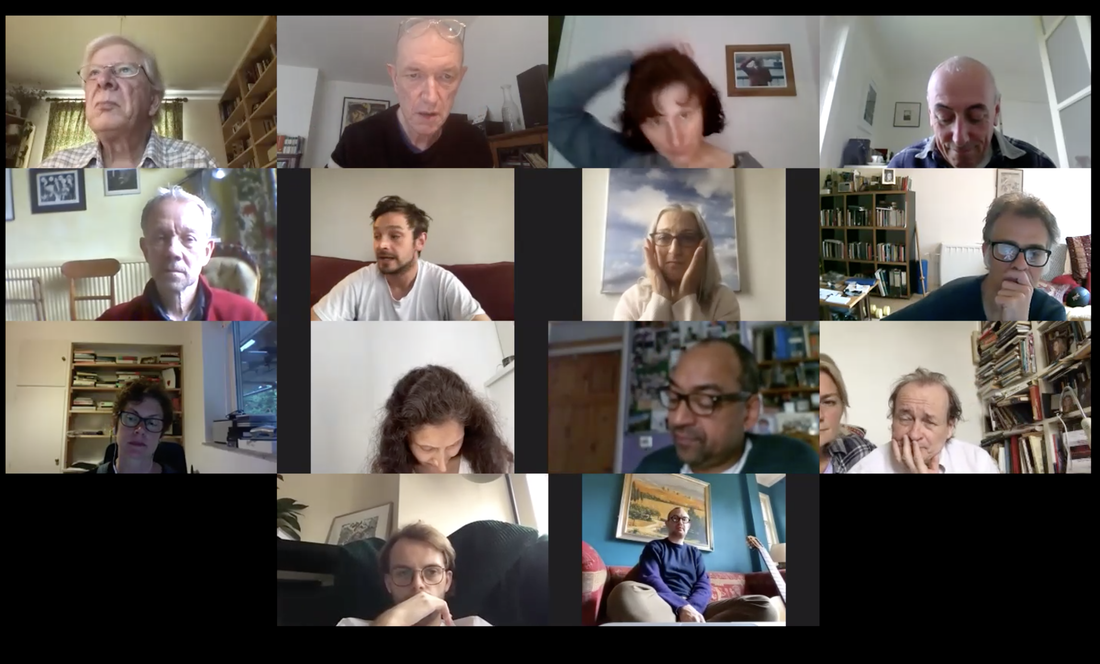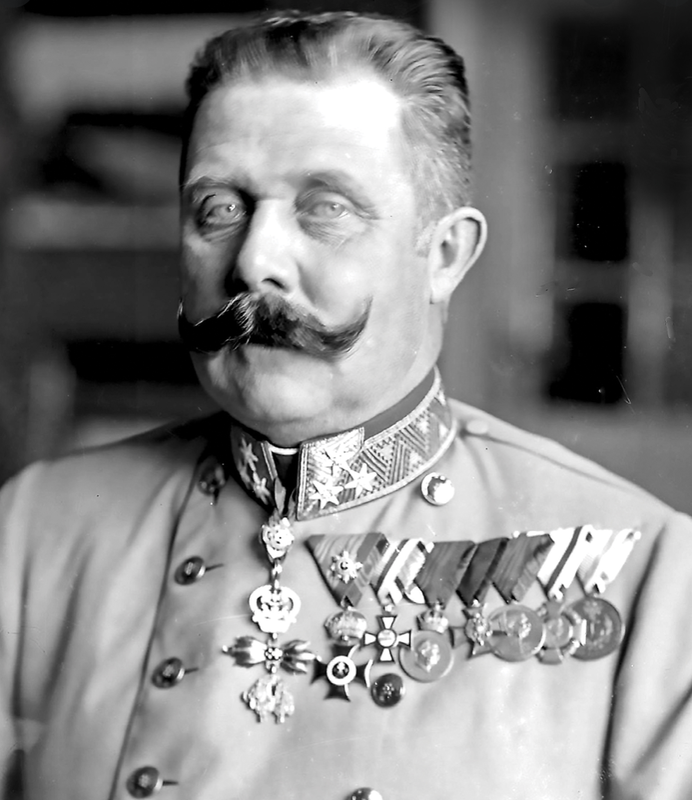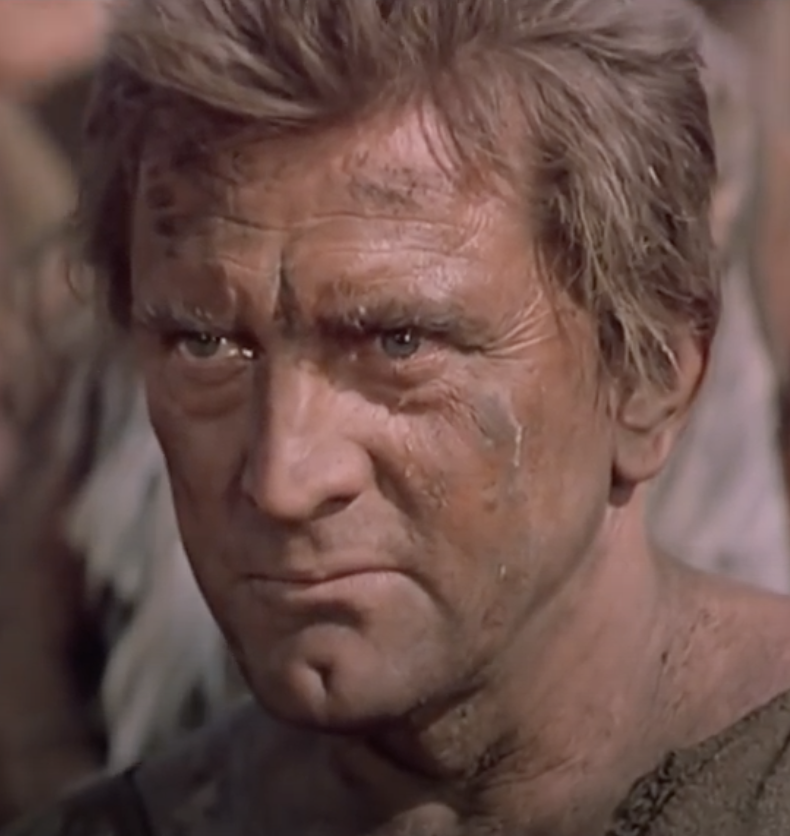|
Present (left to right on each row from top): David Whitworth, Colin Ellwood, Anna Mors, Kevin McMonagle, Jamie Newall, Oliver Yellop, Susan Raasay, Simon Furness, Rachel Bavidge, Sakuntala Ramanee, Anthony Ofoegbu, Valerie Gogan/Simon Usher, Adam Tyler, Benji Hooper.
On Friday (9th June) our focus was on the ‘little’ person in history and their ability to unsettle or disrupt power, even to change the course of things generally, sometimes very generally….world-cataclysmic ‘generally’….. After taking inspiration from a sampling of the ‘I am Spartacus’ scene in the Kubrick/Kirk Douglas film (the real-time spreading of the ‘virus’ of the original power-disrupting ‘little man’…) we began the reading proper with a group version of the opening pages of Jaroslav Hasek’s early 20th Century Czech masterpiece, The Good Soldier Schwey, featuring dodgy dog-dealer Schweyk hearing from his landlady news of Franz Ferdinand’s Sarajevo assassination…with subsequent inaccurate speculation on the deed from Schweyk himself. Then we moved from fiction’s ultimate little man to possibly his real life avatar, Gavrilo Princip, the actual assassin of Franz Ferdinand, in actor Oliver Yellop’s one-actor script I am Gavrilo Princip. This became We Are Gavrilo for the afternoon, (a kind-of shared ‘Spartification’) with participation of musician Benji’s Hooper’s guitar as a musical voice complementing the vocal ones, and with the writer also present. What a story. How indeed do you remain an individual, an 'I am...', when both you and the world are overwhelmed by the consequences of your actions, that in any case turn out to have been the result of your unwitting manipulation at others’ hands. And THEN your reputation and legacy are co-opted to support the very opposite of what you intended. Poor Princip was buried three times: Firstly alive, in gaol, then in the usual way (from TB at 24), then occluded a third time by history itself. Ollie's script lets the real boy break out from history’s and politics’s misrepresentations, to declare himself for what he specifically, humanly was, felt and intended. And he was only a boy, really, a nineteen-year-old clever kid from a poor rural background caught up in the maelstrom of the Balkans’ historic tensions, and easy game for whichever political ‘player’ came along. Here a 'Lord Jim' figure gesturing from behind the 20th Century’s wall of fire.....and like fictional Schweyk also, but on a much larger scale, he initiated havoc, but without the comedy, Subsequently we tackled Brecht’s dramatic co-opting of the Schweyk character for his own contemporaneous purposes, in Schweyk in the Second World War. This is in many ways a perplexing piece. He wrote it in Hollywood at a time when I don’t think he had been actually working in theatre for a while. It was never staged in his lifetime, and it certainly could do with some theatrical sharpening, although maybe that's partly the point. It is discursive rather than dramatic for a lot of the time.. We hang out with these people, rather than watch them ‘hunkering down’ for grand action. It's the Nazis getting embroiled in Schweyk-ian triviality (revealing themselves to be comically pathetic in their petty internal rivalries and dogged pursuit of the banal). It's almost an anti-play in its shaggy-doggedness...as Schweyk sort-of gets his way and sort-of undermines the Nazis, none of whom know how to deal with the disastrous consequences of his apparent cooperation… suggesting (in a parallel with the counter-intuitive supposed effects of hope and despair) that it’s not the dissent that gets you in the end, but the acclamation. The play was conceived at a moment, 1943, when Hitler’s Russian invasion had gone disastrously wrong at Stalingrad, and the myth of the Nazis’ toxic invincibility had been well and truly rumbled. I think the play might function for audiences rather as Schweyk's meandering, misdirecting stories function for the Nazis.....making you wonder 'what the f**k....' Although of course Schweyk’s power-disrupting 'signal-blocking' (a bit like a plane dropping fragments of metal foil to disrupt radar...) is a prime example of Brecht 'underdog' tactics. Schweyk is the ultimate mal-ware for Nazi software (or that of any other power-mad narcissistic entities). It is a technique long practiced in classrooms everywhere by kids against officious teachers. Who would be a great Schweyk? I keep thinking of the late Chic Murray... The Czechs in the play (in relation to the Germans in the Brecht or the Austrians in the original Hassek) are like any colonised community in relation to an 'imperium': The Scots or Irish to the English, or English to the US, or any of the cultures occupied by the British Empire. Bill Paterson played the part in Richard Eyre’s 1982 National Theatre production. In the reading, we sampled Brecht and Eisler’s astonishing songs from the show as we read, in Gisela May’s wonderful recordings. We got to halfway through the script, to the interval, having covered a lot of ground over the afternoon. The play depends on rich, pungent characterisations, and despite the fact that the group were of course sight reading, there were some tremendous flickers, and some amazing direct hits. We might sample one of the second half’s stand-alone scenes before the summer break CE
0 Comments
Leave a Reply. |
INDEX of dates:
INDEX of playwrights and plays:
INDEX of contributors:
|




 RSS Feed
RSS Feed
